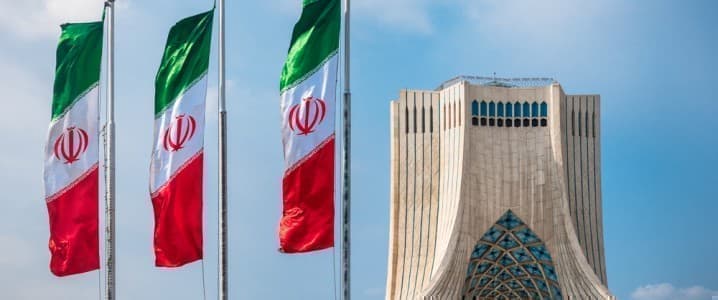The helicopter crash that killed Iranian President Ebrahim Raisi has sent shock waves around the Islamic Republic and the region.
But Raisi's death is not expected to bring major changes to Tehran's domestic and foreign policies, analysts say.
Supreme Leader Ayatollah Ali Khamenei, who has the final say in all major state affairs, and the powerful Islamic Revolutionary Guards Corps are the key centers of power in Iran, where the president's authority is limited.
"The death of Raisi, in itself, will not cause a significant shift in Iran's policies," said Hamidreza Azizi, a fellow at the German Institute for International and Security Affairs. "After all, the president is the second in command in the power hierarchy of the Islamic republic, and strategic directions are set by the supreme leader."
As president, Raisi oversaw a brutal crackdown on antiestablishment protests in 2022 and the tightening of the country's morality laws.
The real significance of the ultraconservative Raisi's death, experts say, is that it could set off a power struggle among the country's hard-liners.
The demise of Raisi, who was widely tipped to become the next supreme leader, could also complicate Khamenei's succession plans.
Raisi, a former judiciary chief, was a longtime protege of Khamenei, who was believed to be grooming him as his successor.
Sanam Vakil, director of the Middle East and North Africa program at the London-based Chatham House, said Raisi "fit the bill" to take over from Khamenei and even modeled his life on the 85-year-old supreme leader.
"[Raisi] was a loyal functionary willing to do the bidding of the supreme leader through multiple institutions," she said. "There are no obvious candidates that can tick a lot of boxes."
Raisi's death has left a vacancy to fill. Elections must be held within 50 days, according to Iranian law, leaving the clerical establishment scrambling to find a suitable replacement.
The early front-runners are speaker of parliament Mohammad Baqer Qalibaf and judiciary chief Gholamhossein Mohseni-Ejei.
Azizi said the next president could have "significant influence over the overall trajectory" of Khamenei's succession.
"As a result, this is going to lead to heightened intra-conservative competition to [become president]," he added.
Ali Vaez, the director of the Iran Project at the Brussels-based International Crisis Group, said the upcoming election offers an opportunity for the clerical establishment to "pursue a different course" by allowing a relatively competitive vote.
In 2021, Raisi won the presidential election by a landslide, in a vote that was widely seen as rigged. His victory consolidated the power of hard-liners, who assumed control of all three branches of government.
"But I suspect that the regime is dedicating all its efforts to preparing for a succession after Khamenei, striving to create homogeneous conditions at the top of the power pyramid, and not allowing any rivals into this circle," Vaez told RFE/RL's Radio Farda.
International Relations
Raisi’s death is unlikely to have any impact on the deepening ties between Iran and Russia, a relationship that has increasingly worried the West, analysts say.
Iran has supplied thousands of drones to Russia following its February 2022 invasion of Ukraine. The Iranian unmanned aircraft, known as the Shahed, has played a key role in the 27-month war, allowing Russia to devastate Ukrainian cities at a distance, including destroying critical infrastructure.
"It is unlikely that anything will change in relations between Russia and Iran. At least if a conservative remains president,” Ilia Kusa, an analyst at the Kyiv-based Ukrainian Institute of the Future, said on Facebook.
"The situational partnership between Russia and Iran is tied not so much to one person as to the international situation, poor relations with the West, and close ties at different levels," he said.
As for U.S.-Iranian relations, which have been tense for decades, the Biden administration does not expect any transformation with Raisi's death.
White House national security spokesperson John Kirby told reporters on May 20 that when it comes to Iranian policy, it is Khamenei who “calls the shots,” not the president.
“So we don't anticipate any change in Iranian behavior. And therefore the Iranians should not expect any change in American behavior when it comes to holding them accountable,” Kirby said.
By RFE/RL
More Top Reads From Oilprice.com:
- Consumers Sue U.S. Shale Alleging Collusion to Boost Oil Prices
- Europe Needs To Address Intermittent Renewables Generation
- The IEA Has Cut Its Oil Demand Growth Forecast for 2024



















The replacement of the late president will be another hardliner or even a member of the IRGC. Any change could be cosmetic in that Iran could openly show its nuclear hand as a deterrent against any future attacks by Israel and the United States.
Dr Mamdouh G Salameh
International Oil Economist
Global Energy Expert